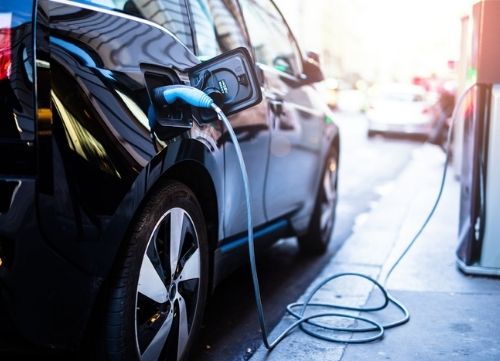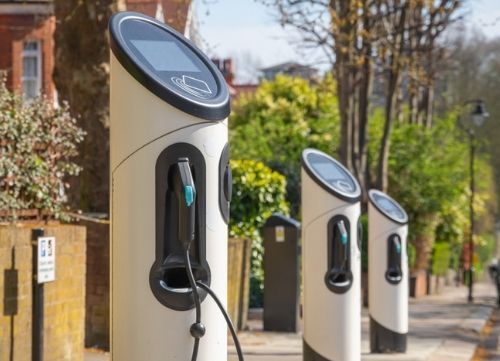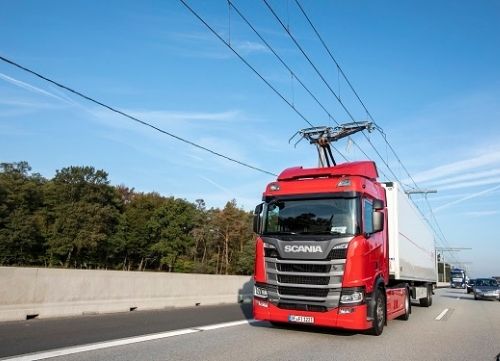The government’s commitment to ending the sale of fossil fuel vehicles from 2030 means most UK fleet businesses and automobile brands have started at least investigating the costs of moving to an all-electric future. But in some significant ways, electric technology is a factor on our streets and highways right now.
These are four examples of the elec-tech already changing UK roads.

We’ll start with the most obvious example. Electric cars are already on UK roads – and the great news is that their popularity is already growing. Heycar reports there were over 21,000 new fully electric vehicles registered in November 2021, making up 18.8% of the market, while hybrids made up 9.3% with 10,796 registrations.
Interestingly, those numbers occurred amidst a decline in overall vehicle registrations, meaning electric cars were the only category to show growth in the number of registered vehicles. Clearly, UK drivers are beginning to get the message that going green is good for everyone.

You can’t have electric cars without suitable charging points – and thankfully, the list of those is growing every day. In fact, there are now more than 42,000 charge points across the UK. And, with an interactive map service over at Zap Map to help you find your nearest one, the chances of being caught with a low battery in the middle of nowhere are lower than ever – providing you plan ahead.
“I would personally only get an EV if you have the means to regularly charge it at home or work with at least a 7kwh charging point,” said SG Fleet Consumer Manager Ryan Harris in our blog post ‘What’s Switching to an Electric Vehicle Like?’ “While using public charging is okay on the odd occasion for longer journeys, I wouldn’t want it to be my only means of charging. Being able to come and just plug the car in overnight is great.”
However, the UK government is aware of the need for more charging points, and recently announced that every new house built from 2022 onwards must include an electric charge point. It’s a measure the Prime Minister estimates will create a further 145,000 charge points each year, allowing the country to hit substantial figures by the time the move to electric vehicles happens in 2030. If that doesn’t show how UK electric cars are changing the UK roads and neighbourhoods, we don’t know what does!

Image credit: Voi Scooters
One of the more prominent examples of elec-tech already changing UK roads is the rollout of e-scooters for hire that happened in many major cities throughout 2021.
To work the scooters, users download branded apps and sign up using their driving license. You must be at least 18 years old and have at the very least a valid provisional license, which is verified by a stringent in-app approvals process before allowing the user to unlock the vehicle.
The scooters are capped at speeds of around 15mph and must be ridden only on roads, with strict warnings given around wearing protective equipment and not riding under the influence of alcohol. Used sensibly and correctly, they offer a handy, nippy and fun way to get around larger city spaces, and can even present an enjoyable leisure pursuit as friends meet up to scoot around just for the fun of it.
In London, there are three different providers users can choose from; Lime, Dott and Tier – with plans for e-bikes to join the fray in a city already famous for its ‘Boris bike’ hire scheme.
On the south coast, meanwhile, operators include Voi in Southampton, and Beryl in Bournemouth – the latter of which is ahead of London in offering a live e-bike solution, too. These represent just a handful of similar providers up and down the country.
These new offerings, powered by the Internet of Things, have presented a challenge for drivers as they become accustomed to seeing scooter riders zip in between vehicles at traffic lights. A great example of how UK roads are changing to support electric vehicles – albeit not necessarily four-wheeled ones!

Image credit: Costain
We’re cheating a little here and including one technology that’s still in the planning stages – but one we feel all fleet businesses should be fully aware of.
By far the most promising and relevant example of how UK roads are changing to support electric vehicles is the recent news that the Department for Transport has commissioned a study to investigate building its first ‘eHighway.’
Outlined here by one of the brands involved, climate change experts Costain, the study is part of a £20m government investment in zero-emission freight trials. If successful, it would see the UK’s major roads fitted with overhead lines, which specially-adapted trucks would fit to in order to run off electric power – not unlike tram systems.
Encouragingly, if successful, the scheme could see tens of thousands of jobs created in order to build hundreds of thousands of trucks over a 10-15-year period. With significant sums of money already being spent to investigate making this a reality, this from our perspective is undoubtedly the most exciting piece of elec-tech changing UK roads. We can’t wait to see how the project develops!
At SG Fleet, we offer both market-leading e-leasing services and a wealth of experience helping businesses make the switch to greener technologies.
To see how we can help you with going green, call us on 0344 854 5100 or email CSalmon@sgfleet.com.